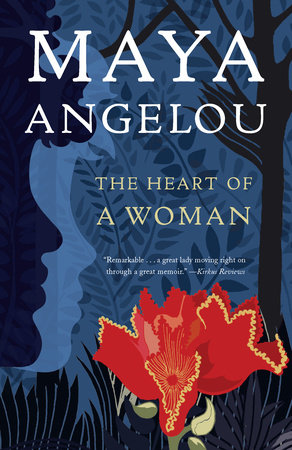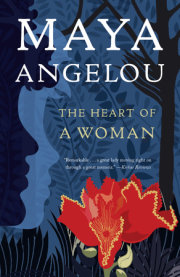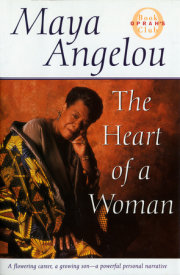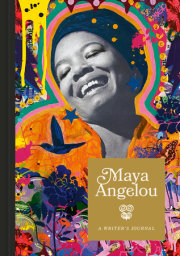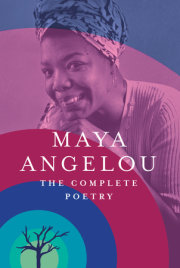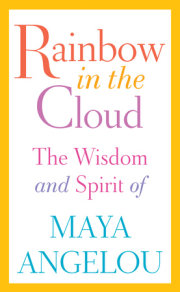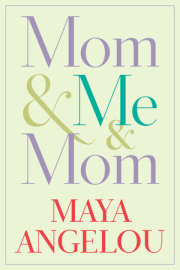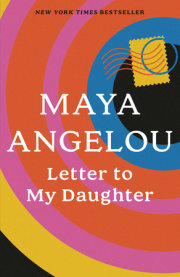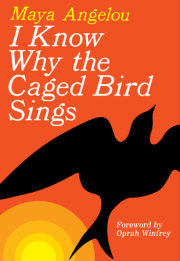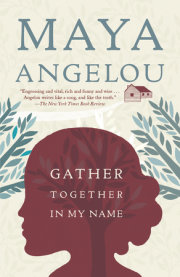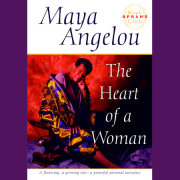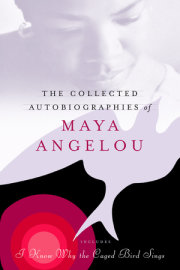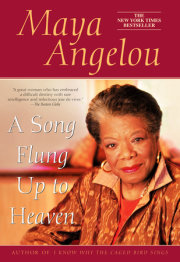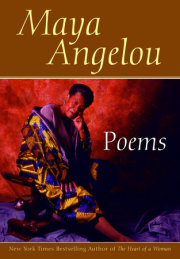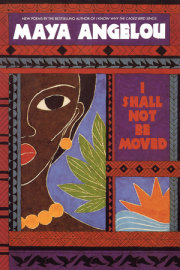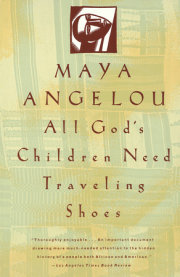The Harlem Writer's Guild was meeting at John's house, and my palms were sweating and my tongue was thick. The loosely formed organization, without dues or membership cards, had one strict rule: any invited guest could sit in for three meetings, but thereafter, the visitor had to read from his or her work in progress. My time had come.
Sara Wright and Sylvester Leeks stood in a corner talking softly. John Clarke was staring at titles in the bookcase. Mary Delaney and Millie Jordan were giving their coats to Grace and exchanging greetings. The other writers were already seated around the living room in a semicircle.
John Killens walked past me, touching my shoulder, took his seat and called the meeting to order.
"O.K., everybody. Let's start." Chairs scraped the floor and the sounds reverberated in my armpits. "As you know, our newest member, our California singer, is going to read from her new play. What's the title, Maya?"
"One Love, One Life." My usually deep voice leaked out high-pitched and weak.
A writer asked how many acts the play had. I answered again in the piping voice, "So far only one."
Everyone laughed; they thought I was making a joke.
"If everyone is ready, we can begin." John picked up his note pad. There was a loud rustling as the writers prepared to take notes.
I read the character and set description despite the sudden perversity of my body. The blood pounded in my ears but not enough to drown the skinny sound of my voice. My hands shook so that I had to lay the pages in my lap, but that was not a good solution due to the tricks my knees were playing. They lifted voluntarily, pulling my heels off the floor and then trembled like disturbed Jello. Before I launched into the play's action, I looked around at the writers expecting but hoping not to see their amusement at my predicament. Their faces were studiously blank. Within a year, I was to learn that each had a horror story about a first reading at the Harlem Writers Guild.
Time wrapped itself around every word, slowing me. I couldn't force myself to read faster. The pages seemed to be multiplying even as I was trying to reduce them. The play was dull, the characters, unreal, and the dialogue was taken entirely off the back of a Campbell's soup can. I knew this was my first and last time at the Guild. Even if I hadn't the grace to withdraw voluntarily, I was certain the members had a method of separating the wheat from the chaff.
"The End." At last.
The members laid their notes down beside their chairs and a few got up to use the toilets. No one spoke. Even as I read I knew the drama was bad, but maybe someone would have lied a little.
The room filled. Only the whispering of papers shifting told me that the jury was ready.
John Henrik Clarke, a taut little man from the South, cleared his throat. If he was to be the first critic, I knew I would receive the worst sentence. John Clarke was famous in the group for his keen intelligence and bitter wit. He had supposedly once told the FBI that they were wrong to think that he would sell out his home state of Georgia; he added that he would give it away, and if he found no takers he would even pay someone to take it.
"One Life. One Love?" His voice was a rasp of disbelief. "I found no life and very little love in the play from the opening of the act to its unfortunate end."
Using superhuman power, I kept my mouth closed and my eyes on my yellow pad.
He continued, his voice lifting. "In 1879, on a March evening, Alexander Graham Bell successfully completed his attempts to send the human voice through a little wire. The following morning some frustrated playwright, unwilling to build the necessary construction plot, began his play with a phone call."
A general deprecating murmur floated in the air.
"Aw, John" and "Don't be so mean" and "Ooo Johnnn, you ought to be ashamed." Their moans were facetious, mere accompaniment to their relish.
Grace invited everyone to drinks, and the crowd rose and started milling around, while I stayed in my chair.
Grace called to me. "Come on, Maya. Have a drink. You need it." I grinned and knew movement was out of the question.
Killens came over. "Good thing you stayed. You got some very important criticism." He, too, could slide to hell straddling knotted greasy rope. "Don't just sit there. If they think you're too sensitive, you won't get such valuable criticism the next time you read."
The next time? He wasn't as bright as he looked. I would never see those snotty bastards as long as I stayed black and their asses pointed toward the ground. I put a nasty-sweet smile on my face and nodded.
"That's right, Maya Angelou, show them you can take anything they can dish out. Let me tell you something." He started to sit down beside me, but mercifully another writer called him away.
I measured the steps from my chair to the door. I could make it in ten strides.
"Maya, you've got a story to tell."
I looked up into John Clarke's solemn face.
"I think I can speak for the Harlem Writer's Guild. We're glad to have you. John Killens came back from California talking about your talent. Well, in this group we remind each other that talent is not enough. You've got to work. Write each sentence over and over again, until it seems you've used every combination possible, then write it again. Publishers don't care much for white writers." He coughed or laughed. "You can imagine what they think about black ones. Come on. Let's get a drink."
I got up and followed him without a first thought.
. All rights reserved. No part of this excerpt may be reproduced or reprinted without permission in writing from the publisher.

